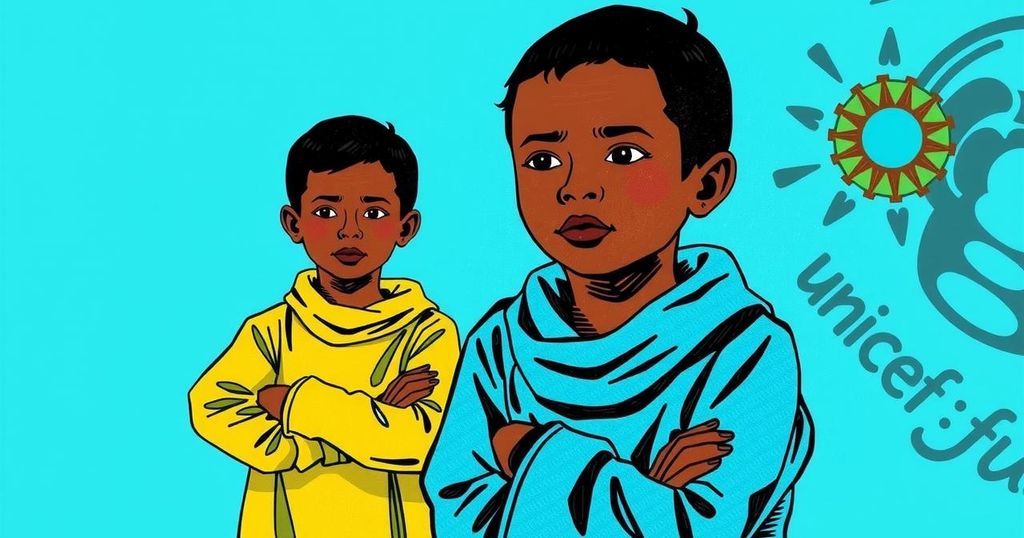UNICEF has warned that children’s futures are at risk due to demographic changes, climate crises, and technology unless urgent actions are taken. The statement emphasizes the importance of global leaders’ decisions today for the children’s tomorrow, highlighting the uneven distribution of child populations and the pressing need for social services in certain regions. Furthermore, the climate crisis poses serious threats to children’s health and development, calling for immediate responses to secure their rights and opportunities.
On World Children’s Day, UNICEF released a statement highlighting the pressing need to safeguard children’s rights as the world undergoes significant transformations due to several megatrends. The future of childhood, according to UNICEF, is threatened by shifting demographics, climate crises, and the rapid advancement of technology. Catherine Russell, the executive director of UNICEF, emphasized that current decisions by global leaders will shape the environment that children inherit. The report outlined that massive demographic changes are anticipated by 2050, with millions more children in specific regions where essential services are already strained.
Projected population shifts will see the majority of children living in Eastern and Southern Africa as well as parts of South Asia by 2050. This demographic transition underscores the need for Pacific Island nations, which will see a rise in child populations, to enhance their focus on delivering vital social services. At the same time, the global child population may remain stable at approximately 2.3 billion, but regional disparities will greatly affect their living conditions.
The report also highlights the alarming impacts of climate change and environmental degradation on children. Nearly half of the world’s children live in regions at high risk from climate-related hazards. Challenges such as air pollution, food insecurity, and extreme weather events directly threaten their health and development. With millions of children facing unsafe environments, the urgency for protecting their rights becomes paramount.
Despite the hurdles, UNICEF also points to the potential of frontier technologies to improve the lives of children if harnessed responsibly. Digital skills and connectivity are crucial for accessing educational opportunities and future employment. However, the stark digital divide must be addressed, especially in low-income countries where access to technology remains limited. UNICEF advocates for immediate actions to bridge this gap and enhance the rights of every child in the face of global challenges.
Ultimately, the message of World Children’s Day serves as a clarion call for leaders worldwide to prioritize the wellbeing of children, indicating that the time for proactive measures is now, to ensure a brighter future for the generations to come.
UNICEF’s recent statement coinciding with World Children’s Day underscores the critical state of children’s rights in light of ongoing global changes. Three significant forces are identified: demographic shifts, climate and environmental crises, and breakthroughs in technology. This context emphasizes the importance of understanding how these factors intertwine and influence the future prospects of childhood globally, setting the stage for urgent advocacy and reform efforts.
In summary, UNICEF has outlined a clear and urgent message regarding the future of childhood amid significant global changes. The upcoming challenges posed by demographic shifts, climate crises, and technology must be met with decisive action from leaders and communities alike. Ensuring the rights and wellbeing of children is not merely a necessity; it is an obligation that demands immediate attention and commitment to foster a safer, more equitable world for future generations.
Original Source: www.fijitimes.com.fj






